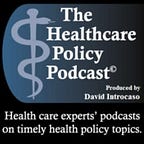Dr. Paul Farmer unexpectedly passed away on February 21, 2022. He was 62. Trained as physician and medical anthropologist, Dr. Farmer was known moreover for his healthcare work in Haiti that he more formally forwarded via Partners in Health (PIH), an organization he cofounded in 1987. Over the subsequent years Dr. Farmer and PIH expanded their work around the world in Africa, Russia, South America and in the US. Dr. Farmer and his colleagues were also widely known for their international efforts to address multi-drug resistant tuberculosis (MDR TB). Among other notable achievements, Dr. Farmer served as a University Professor and a department chair at Harvard, served in United Nations’ positions, on numerous boards and as editor in chief of Health and Human Rights. He authored over 100 articles and a dozen books. His most recent was the 2020 work, “Fevers, Feuds and Diamonds: Ebola and the Ravages of History.” Among numerous awards Dr. Farmer received a MacArthur fellowship, was elected to the National Academy of Sciences was the recipient of numerous honorary doctorate degrees and prizes. (Listeners may recall I interviewed Dr. Reinhart on June 24, 2021 regarding mass incarceration, public health and structural racism during the COVID era.)
During this 38-minute conversation, Dr. Reinhart begins by noting his relationship with Dr. Farmer. He goes on to discuss or attempt to interpret Dr. Farmer's work, what informed his work or motivated him, how he pursued his work and what might his legacy be or should be.
Dr. Eric Reinhart is a political anthropologist, psychoanalyst, and physician. His teaching and research addresses the anthropology of law, inequality, and public health; psychoanalysis, ethnography, and aesthetic politics; and medicine, policing, and logics of apartheid and abolition. In addition, he conducts conduct policy-oriented public health research to address carceral-community epidemiology, or how the health and welfare of incarcerated people are always intertwined with that of broader communities. The work examines systemic prejudice in healthcare and legal systems, the uses of confinement and punishment in the US and internationally, and large-scale decarceration policies in relation to public health and safety, pandemic preparedness, and biosecurity. His research has been published in medical and legal journals including The New England Journal of Medicine, The Lancet, Proceedings of the National Academy of Sciences, Health Affairs, and Journal of Legal Studies – and in popular media venues, such as The New York Times, The Atlantic, TIME, Slate, The Nation, Boston Review, The New Republic, and USA TODAY.




